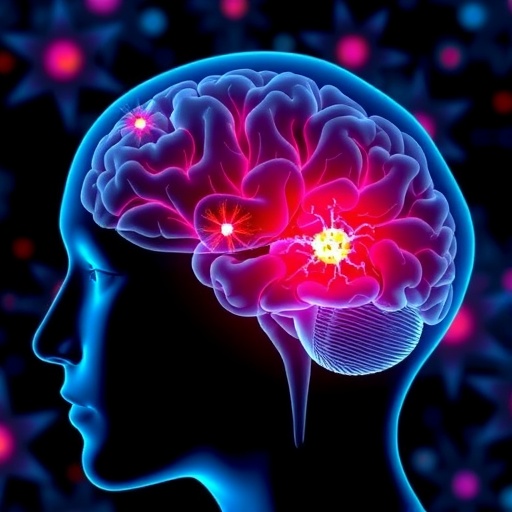In a groundbreaking study that holds significant promise for the future of traumatic brain injury (TBI) treatment, researchers have explored the use of oral mesenchymal stem cells (MSCs) and their potential effects on digestive system inflammation, oxidative stress, and histopathological changes in a rat model. Traumatic brain injury, often leading to devastating physical and cognitive impairments, remains a challenging area of research. The interdisciplinary team, led by Eslami, Raji-Amirhasani, and Khaksari, has presented compelling findings that could redefine therapeutic approaches in neuroregenerative medicine.
The study embarked on the premise that TBI not only affects the brain but also contributes to broader systemic changes, particularly within the digestive system. Previous research indicated that inflammation and oxidative stress play crucial roles in the pathophysiology of TBI, exacerbating neuronal damage and subsequent functional impairments. Therefore, the research team aimed to investigate the cross-talk between the central and systemic nervous systems whereby inflammation could compromise gut health, further influencing recovery trajectories.
Using a well-established rat model of TBI, the researchers focused on delivering MSCs orally, a method previously uncharacteristic in stem cell therapy. This approach sought to circumvent the invasive procedures typically associated with stem cell administration. By harnessing the regenerative potential of MSCs through a non-invasive route, the researchers aimed to enhance accessibility and ease of treatment, a crucial element in developing practical therapeutic strategies.
Upon administration of oral MSCs, the team observed significant changes in various biomarkers indicative of inflammation and oxidative stress. The results shed light on the complex interactions between digestive health and neurological function, highlighting that systemic inflammation often observed post-TBI may be mediated through the gastrointestinal tract. Such findings underscore the necessity of understanding these interconnected pathways which can drastically influence clinical outcomes for patients recovering from TBI.
Histopathological examinations revealed intriguing patterns as well. The administration of MSCs seemed to correlate with a reduction in inflammatory markers within the gastrointestinal tissues of the treated rats. This reduction hints at the restorative capabilities of MSCs, potentially modulating the inflammatory responses that compound TBI effects. Furthermore, neuron-intrinsic damage assessment indicated a favorable impact on neuronal recovery, bolstering the case for MSC therapy in promoting neuroprotection and regeneration.
Interestingly, the study also dug deeper into the specific cellular mechanisms behind these transformations. The MSCs were found to release various paracrine factors, known for their anti-inflammatory and neuroprotective properties. This discovery could open new avenues in understanding how cell-to-cell communication impacts recovery processes following injury, potentially paving the way for targeted therapeutic strategies aimed at enhancing these beneficial signals.
The methodological robustness of this study—relying on a combination of biochemical analyses, histological assessment, and behavioral evaluations—ensures that its findings are both comprehensive and clinically relevant. These methods allowed the researchers to triangulate data from various perspectives, contributing to a more holistic understanding of the biological changes occurring post-TBI and following MSC treatment.
As the field progresses, it becomes increasingly clear that TBI necessitates multifaceted approaches. The implications of the findings extend beyond mere treatment of brain injuries, suggesting a paradigm shift towards integrated care paradigms that take into account the overall bodily response to trauma. Strategies that consider the gut-brain axis in therapeutic designs could revolutionize conventional TBI management and open doors to novel treatment modalities.
Future research directions could focus on delineating the optimal timing and dosage for MSC administration. Exploring how these variables influence outcomes may further refine therapeutic protocols and solidify the role of MSCs in clinical practice. Additionally, long-term effects of such treatments warrant investigation to underscore their sustainability and efficacy over extended recovery periods.
Moreover, extending research to human clinical trials is imperative. Although animal models serve as a valuable stepping stone, understanding how these findings translate to humans will be crucial. Harnessing the regenerative capabilities of MSCs in clinical settings necessitates careful evaluation to ensure safety and efficacy. Ethical considerations, particularly concerning the source and manipulation of stem cells, must be thoroughly addressed as the research progresses.
In conclusion, this research opens exciting new pathways in the treatment of TBI. By highlighting the influence of oral MSC administration on digestive health, inflammatory pathways, and neuronal recovery, the study promises to inform future interventions and clinical practices. As research evolves, it is essential to recognize the potential of cross-disciplinary approaches in achieving holistic trauma recovery, solidifying the place of regenerative medicine in contemporary therapeutic landscapes.
As the dialogue around TBI treatment advances, it brings together researchers, clinicians, and patients alike in a shared quest for innovative and effective therapies. This study not only contributes to scientific understanding but also inspires hope for future developments in the realm of brain injury recovery.
Subject of Research: The effect of oral mesenchymal stem cells on digestive system inflammation and recovery following traumatic brain injury in rats.
Article Title: The changes of digestive system inflammatory, oxidative stress, and histopathology factors following oral mesenchymal stem cells administration in rats with traumatic brain injury.
Article References:
Eslami, M., Raji-Amirhasani, A., Khaksari, M. et al. The changes of digestive system inflammatory, oxidative stress, and histopathology factors following oral mesenchymal stem cells administration in rats with traumatic brain injury.
BMC Neurosci 26, 20 (2025). https://doi.org/10.1186/s12868-025-00936-w
Image Credits: AI Generated
DOI: 10.1186/s12868-025-00936-w
Keywords: traumatic brain injury, mesenchymal stem cells, inflammation, oxidative stress, neuroprotection, histopathology, regenerative medicine.




